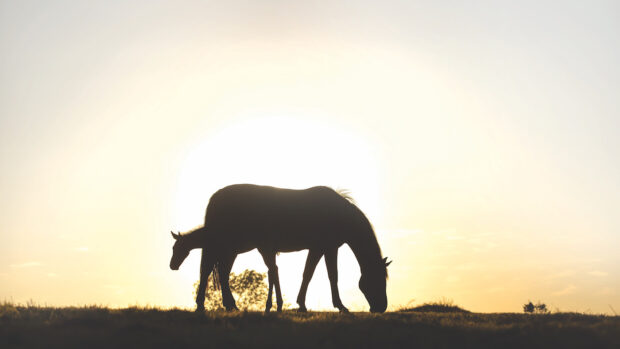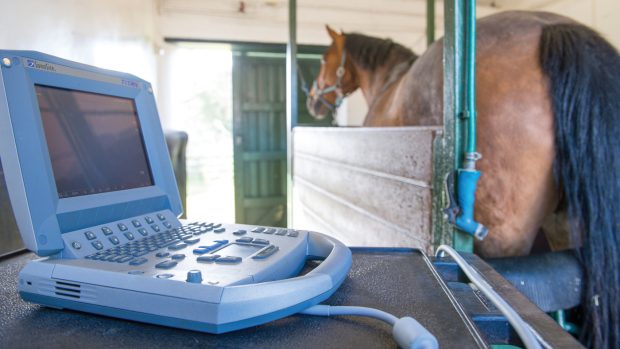Industry figures and the Government are working together to combat foreseen issues when new border control posts (BCPs) come in at the height of the breeding season.
As a requirement of official controls being applied following Brexit, Britain has to introduce BCPs for animals and germinal products, including equine semen and embryos. The former are due to open in the autumn but the latter in late April and all consignments must enter Britain through a BCP from the published dates.
Most germinal product consignments are semen, and come in from Europe to East Midlands Airport, where the busiest BCP will be. At the height of the breeding season, this could be 40 or more packages a day, all of which will have to be checked because they fall into the high-risk category of imported products.
Jan Rogers of The Horse Trust and British Horse Council, who is one of those who have been working with the Government on BCPs and other issues, told H&H the flights normally arrive early in the morning.
“All consignments must go through that bottleneck,” she said. “It’s first thing in the morning, outside current BCP operating hours, and there’s such a short time frame before the consignments go on connecting flights or are picked up by couriers. Without some changes, there just isn’t time to deal with such volumes.”
Ms Rogers said meetings have been arranged, with vets, key breeding businesses, Defra and the Animal and Plant Health Agency, including a visit to the airport.
“We’ve been to the Government, raised our concerns and got the right people together,” she said. “We’re trying to pool knowledge and expertise and work with them to find solutions, and we hope to resolve it.
“We’ve been working very closely with the teams building the infrastructure and the operating processes at Sevington, Kent, where the inland BCP will be for live animals and have been bringing about positive changes, which makes us more confident we will be able to find a way of dealing with the [germinal products] issues too. We’ve highlighted challenges and worked together to develop quite a few solutions.”
One issue is that it is unclear why equine semen is classified as high risk; all consignments are checked by an official vet before departure and certified as being from the right stallion, who has been health-tested and in quarantine for 30 days. The semen is then checked again in this country by the inseminating vet.
Tullis Matson, managing director of Stallion AI Services, will be among those at the meetings.
“We’re trying to see if we can get an exemption, or lower the risk status,” he said. “To me it’s bonkers these products are classified as high risk.”
Mr Matson raised the concern that should no changes be made, the risk is that semen could lose its viability owing to delays, and some people might then try to avoid the BCPs.
“We could go back to where we were years ago when people tried to sneak it in without health papers,” he said. “I believe certain people will do that; if they can’t get it in the proper way, they’ll send it disguised as a pair of shoes or something, and that’s a bigger risk to all of us.
“The health testing is very strict, so either there needs to be an exemption or it’s moved to medium risk, which means only a certain few have to be checked.”
A Defra spokesman told H&H border controls are “vital for keeping the UK safe by protecting our food supply chains and agricultural sector from disease outbreaks that would cause significant economic harm”.
“We are working closely with all affected sectors – including in the equine industry – and trading partners around the world to support readiness for this new model,” he said. “This includes agreeing resourcing plans with the APHA and port health authorities to effectively deliver these important new controls.”
He added that Defra is working with the equine industry to ensure border checks are implemented smoothly.
You might also be interested in:

Work ongoing as Brexit delays spark horse welfare concerns

Post-Brexit opportunity for British studbooks

Subscribe to Horse & Hound magazine today – and enjoy unlimited website access all year round
Horse & Hound magazine, out every Thursday, is packed with all the latest news and reports, as well as interviews, specials, nostalgia, vet and training advice. Find how you can enjoy the magazine delivered to your door every week, plus options to upgrade your subscription to access our online service that brings you breaking news and reports as well as other benefits.




